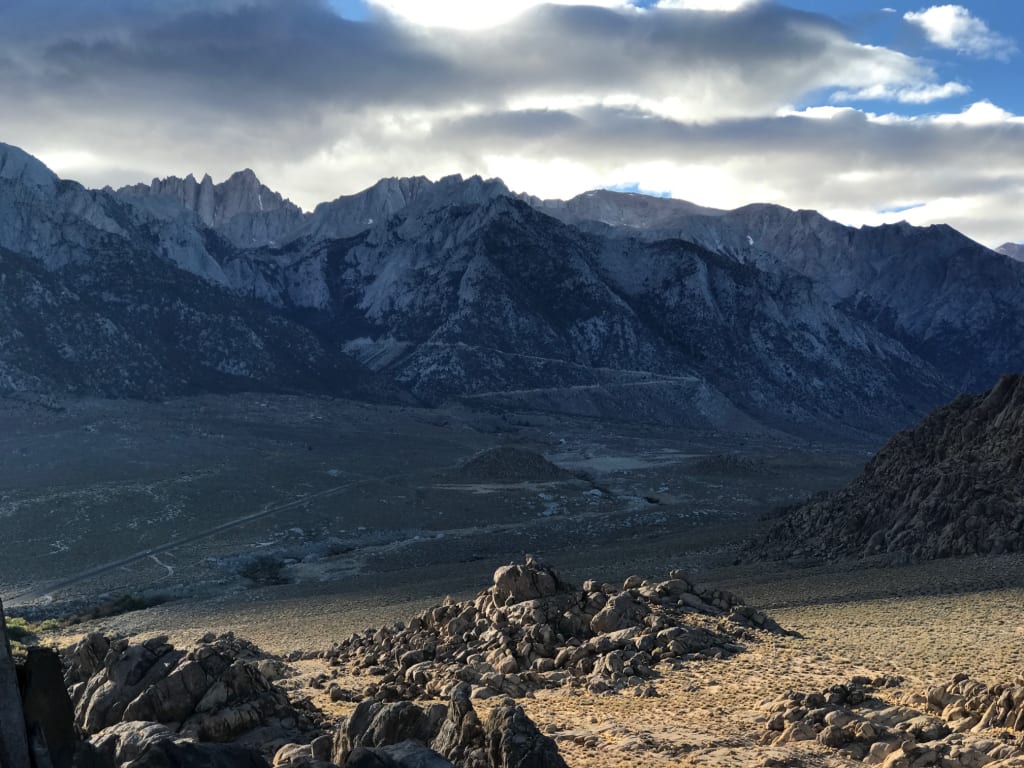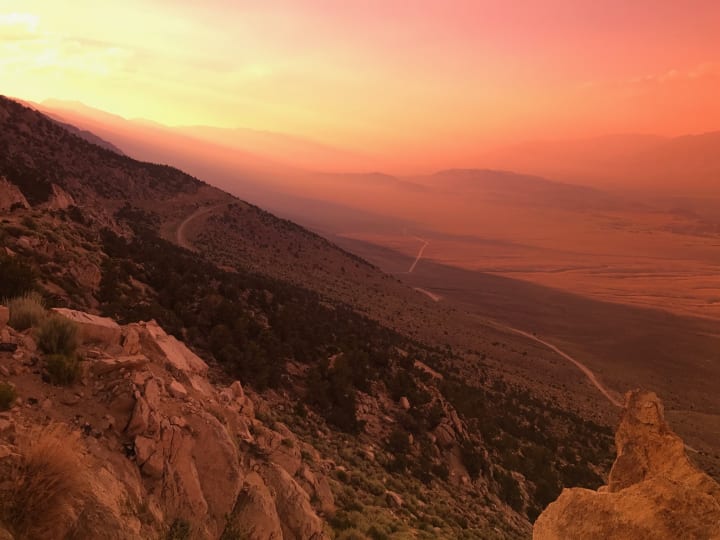Wilderness Maxims for Learning: Part 3
Maxim 3: It’s always farther than it looks, taller than it seems, and tougher than you imagine.

Maxim 3: –It’s always farther than it looks, taller than it seems, and tougher than you imagine.
This week’s wilderness maxim for learning is one of my favorites. I find that I say this often to myself, and I used to say this in my classroom regularly. While it may seem daunting and intimidating, this truth is actually quite liberating. The reality is that a plan is a great thing to have, but plans often change all the time, whether outdoors or in the classroom.
A destination is not the most important part of a hike, but rather it is the experience itself. It’s all perspective and what you choose to recognize and take away from the journey. A hike outside is quality time well spent, no matter the result. So long as one knows the way back to the trailhead, stopping halfway and turning back is never a failure. Why should learning be any different?
Connection to Learning:
Once during college, I set out with 2 friends to hike to the top of Pike’s Peak along the 12-mile Barr Trail during a lunar eclipse. We climbed switchbacks above Manitou Springs through surreal orange and purple eclipse light. About 6 miles in, we stopped to cook dinner at the old Barr Camp cabins, amid a green aspen grove at dusk. We cooked, ate, talked, and laughed; a wonderful evening all around. We ended up bunking in the cabin for the remainder of the night and slept in late the next morning. We hiked out feeling satisfied, even though we’d stopped at the base of the final climb to the peak and returned home without having reached the summit. Nothing about that experience was a failure.

Translating this hike to a classroom assignment, however, makes the entire outing a near-total waste. An embarrassment. We made it about halfway to the peak, so that’s a failing grade of 50%. Sometimes, that’s lovingly referred to by students as an F+. However, considering the trail is 12 miles out and back, we still would have had to hike down from the peak. That means we’d really only walked a quarter of the route. Our final grade plummets to a score of 25% in a classroom.
Receiving a mark that low can be devastating for students. It may even impact their ability to attempt any future assignments. Why is the final score dependent only on achieving the target? How can educators better allow the human experience to factor into scoring?
It’s the Yoda principle taken too far. “Do, or do not do. There is no try.” Except, in the real world, persistent commitment over time is what really builds character and skill, whereas striving for absolute perfectionism can become dangerous. A quick Google search of “failure is more important than success” can reveal why it’s so important to reframe what we are assessing in classrooms and why we are assessing it. It turns out that Yoda was wrong. There is a try and it is more important by far than crossing a finish line.
During my eclipse hike, I had invaluable, timeless experiences building relationships with friends, practicing communication skills, and functioning within an impromptu team. I learned invaluable outdoor skills and basic know-how from my companions. I will forever recall the lush greens and deep browns of the landscape, all blanketed under those strange colors from the eclipse. This was a fundamental backpacking experience that helped me gain confidence in the backcountry. The feeling of joy I experienced on the trail will be with me forever.

I would have rated that hike an A+ and said without hesitation that the destination will still be there at a later time for me to try again. The experience mattered most because it allowed me to gain knowledge and confidence for the next attempt. Isn’t that the exact takeaway we want all of our students to experience after any lesson, assignment, or even a final assessment?
Discussion/Journaling Prompt:
Explore an experience you had that you or others may consider a failure. Instead of focusing on what did not go as planned, identify and highlight everything valuable that you gained or learned after adjusting your original plan. You can either “free write” about anything that comes to mind when you think of this, or you can consider the following guided questions to explore this more closely:
- Consider your thought patterns. Do you tend to have a more rigid/”all or nothing” mindset or do you offer flexibility to yourself and others?
- When is being more rigid or more flexible a benefit or a hindrance?
- How do you typically feel or react when you realize you may not succeed in your intended goal? Are there positive aspects of frustration, disappointment, or feeling that you fell short?
- In what ways could it be helpful or harmful to pursue a goal at any cost or beyond what’s reasonable?
- What are we limiting when we expect ourselves and others to perform to perfection without fail?
- How can you start to enjoy the journey (and not focus only on the destination) with education and in other areas of your life?
There is more to come in Part 4 of this Summer Series on Wilderness Maxims for Learning. Like, share, subscribe, or comment if these ideas resonate with you.
About the Creator
Philip Canterbury
Storyteller and published historian crafting fiction and nonfiction.
2022 Vocal+ Fiction Awards Finalist [Chaos Along the Arroyo].
Top Story - October 2023 [All the Colorful Wildflowers].






Comments
There are no comments for this story
Be the first to respond and start the conversation.